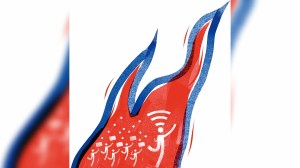Clinton talks tough, warns Pak against cross-border terrorism
ISLAMABAD, MARCH 25: United States President Bill Clinton Saturday warned Pakistan against encouraging cross-border terrorism in Jammu and...

ISLAMABAD, MARCH 25: United States President Bill Clinton Saturday warned Pakistan against encouraging cross-border terrorism in Jammu and Kashmir and asked Islamabad to create conditions conducive for resumption of dialogue with India.
However, Clinton failed to win from Pakistan’s military regime on nuclear disarmament, its dispute with India over Kashmir or the country’s swift return to democracy.
Making it clear that Washington would not mediate on the Kashmir issue and that there was no military solution to the problem, Clinton said, "… America’s sympathy and support will be lost if it (Pakistan) supports attacks against civilians across the Line of Control (LoC)".
Addressing the Pakistani people over radio and television after holding talks with military ruler General Pervez Musharraf, he said it was now time for restraint, respect for the LoC and renewing lines of communication.
Clinton, who made a brief stopover here after his five-day visit to India, asked Pakistan to come out with a complete plan and a “real road map” for restoration of democracy.
White House spokesman Joe Lockhart said Clinton’s “serious, frank” discussions with Pakistan’s military ruler General Pervez Musharraf achieved the main goal of the controversial visit — to register his grave concern over the direction of the longtime US ally.
"The President felt it was important to come here and deliver this message personally and keep the lines of communication open between the two governments," Lockhart said after the one hour-and-forty-minute talks.
"That was accomplished here this afternoon."
Lockhardt told reporters Clinton also stressed the need in his discussions with General Pervez Musharraf for Pakistan to use its influence to bring Saudi-born terrorism suspect Osama bin Laden to justice.
Clinton pressed Musharraf, who seized power in an October coup, to set a time-table for a return to democracy and warned that "embarking on the arms race was an expensive way to squander the country’s wealth," Lockhart said.
He also urged him to open talks with India over Kashmir, to use his influence to fight terrorism and to spare the life of deposed prime minister Nawaz Sharif, who faces a possible death penalty.
But a senior US official said Musharraf stood his ground.
"We heard no new assurances," said the official, adding that Musharraf continued to insist that the democratic rule he overthrew was "deeply flawed."
He had told Pakistan’s military ruler General Pervez Musharraf the nation’s nuclear weapons were a waste of money that did not help its people, a senior US official said Saturday.
The official, speaking on condition of anonymity, said Pakistan’s nuclear weapons “did not make Pakistan a safer place, had not enhanced its deterrence capability and did not make the Pakistani people safer,” the official said.
“In fact, embarking on a nuclear arms race (with India) was an expensive way to squander the nation’s wealth,” the official quoted Clinton as telling Musharraf.
The view was at odds with Musharraf’s stand that Pakistan had to carry out nuclear tests in May 1998 in response to similar trials by India.
The official said Musharraf promised Clinton that Pakistan “would not be the source of any export of weapons of mass destruction.
Clinton has called Kashmir one of the most dangerous places on the world because of the simmering tension between India and Pakistan.
The official spoke shortly before Clinton was to go on Pakistani Television to speak to the country’s 135 million people about Pakistani-US relations.
He said in the speech that there could be no military solution to the Kashmir problem and urged Pakistan’s military government to try to restore dialogue with India.
“There is no military solution to Kashmir,” Clinton said in an address to the Pakistani people over national radio and television at the end of a brief visit after a five-day visit to India and Bangladesh.
Musharraf had pledged, when he took over, to install `real democracy’ in Pakistan to replace what he called the corrupt and inept politics of previous decades and said the army would remain in power as long as the task took to achieve.
This week he unveiled plans to hold elections by July 2001 at district levels as a first phase towards a return to civilian rule but gave no hint when the army would return to barracks and the suspended Parliament would be revived.
Clinton left Mumbai for Islamabad Saturday morning, winding up his five-day visit to India that consolidated economic ties between the two countries.
The US President was seen off at the airport by Maharashtra Governor Dr P C Alexander, Union Minister Pramod Mahajan, Chief Minister Vilasrao Deshmukh, Deputy Chief Minister Chhagan Bhujbal and a host of other dignitaries.
Clinton, who stayed overnight in the metropolis, drove straight to Chhatrapati Shivaji airport from Hotel Oberoi in South Mumbai, accompanied by a high-level American delegation.
Rounding off his visit with an address to the captains of industry here Friday night, Clinton announced it had led to business agreements worth four billion dollars, besides opening up the possibility of a one billion dollar loan from the US Exim Bank for investments in India.
Despite unprecedented security, people from all walks of life accorded an enthusiastic welcome to Clinton, thronging the business zone of South Mumbai.
Clinton arrived in Islamabad Saturday morning for a five-hour visit.
Foreign Minister Abdul Sattar received him at the Chaklala air base. Pakistan’s Ambassador in Washington Maleeha Lodhi and American envoy in Islamabad Millam were also present.
Children attired in traditional dress presented Clinton with bouquets. The president, dressed in a light grey suit, was then driven to the office of President Rafiq Tarar.
An aircraft carrying American journalists and officials arrived a few minutes before the President.
The entire route leading to the Awain-i-Sadar from the airport was lined by army and police personnel. The authorities, till the last moment of his arrival, had conducted security checks.
Photos



- 01
- 02
- 03
- 04
- 05




























